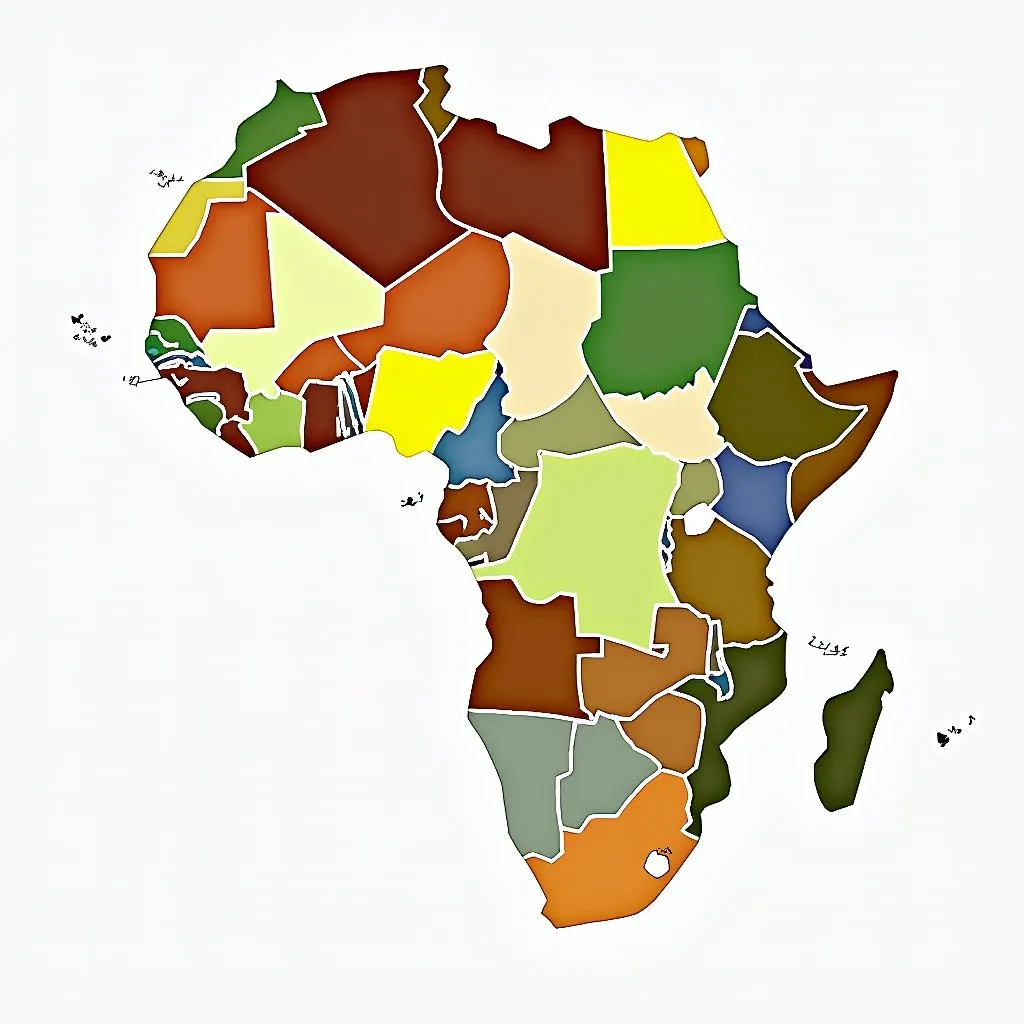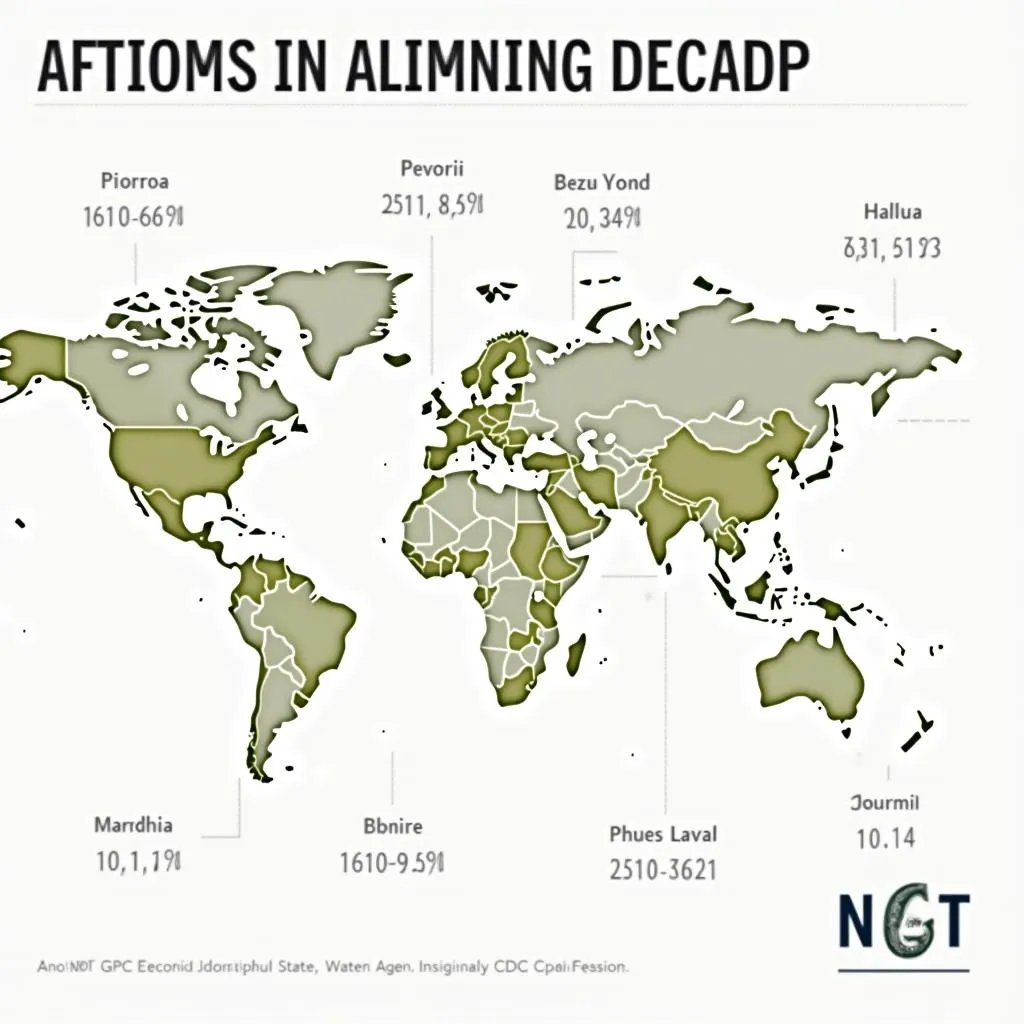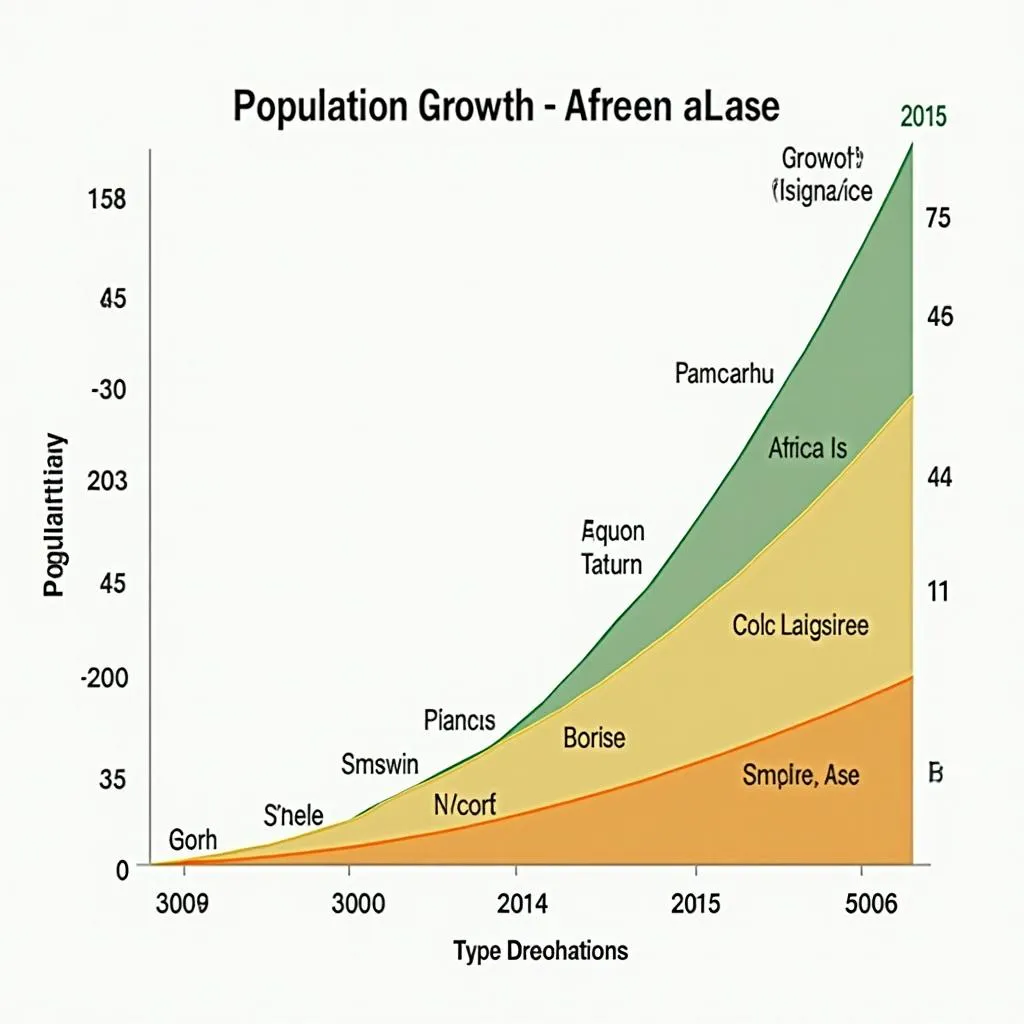African Countries By Population and GDP: A Detailed Overview
Africa, the second-largest and second-most populous continent, is home to 54 diverse countries, each with its unique history, culture, and economic landscape. Understanding the population and GDP of these countries is crucial for grasping the continent’s economic and social dynamics.
This article delves into the population and GDP of African countries, providing insights into their economic performance, challenges, and opportunities. We’ll examine the largest and smallest countries by population and GDP, explore the factors influencing economic growth, and highlight key trends shaping the future of the African economy.
Understanding Population and GDP in Africa
Population refers to the number of people living in a particular region. It is a key indicator of the size and potential of a country’s workforce and consumer market.
GDP (Gross Domestic Product) represents the total value of goods and services produced within a country’s borders over a specific period. It measures the economic output and overall well-being of a nation.
Population density, a measure of how densely populated a country is, can reveal important insights into resource availability and infrastructure development.
GDP per capita, the GDP divided by the population, offers a more accurate picture of individual wealth and living standards.
Largest African Countries by Population
The most populous African countries are:
- Nigeria: With a population of over 200 million, Nigeria holds the title of the most populous country in Africa.
- Ethiopia: Ethiopia comes in second with a population exceeding 110 million.
- Egypt: Home to over 100 million people, Egypt boasts a rich history and diverse culture.
- Democratic Republic of Congo (DRC): DRC boasts a population of over 85 million, making it the fourth-largest country in terms of population.
- South Africa: With a population over 60 million, South Africa is known for its economic diversity and vibrant urban centers.
These countries have a significant impact on the continent’s economy and face unique challenges in terms of development, resource management, and social welfare.
Highest GDP Countries in Africa
The countries with the highest GDP in Africa are:
- Nigeria: Nigeria’s large population and vast oil reserves contribute to its substantial GDP.
- Egypt: Egypt’s diversified economy, anchored by tourism, agriculture, and manufacturing, makes it a key economic player in the region.
- South Africa: South Africa’s robust industrial base and developed financial sector make it the continent’s largest economy.
- Algeria: Algeria’s significant oil and gas reserves contribute to its substantial GDP.
- Morocco: Morocco’s strategic location and diverse economy, including agriculture, tourism, and manufacturing, make it a vital player in North Africa.
These countries showcase the economic potential of the continent and highlight the diverse sectors driving growth.
Factors Influencing Economic Growth in Africa
Several factors contribute to the economic growth and development of African countries. These include:
- Natural resources: Abundant natural resources like oil, minerals, and agricultural land provide a strong foundation for economic growth.
- Infrastructure development: Investing in transportation, energy, and communication infrastructure facilitates trade and economic activity.
- Human capital: Investing in education, healthcare, and skills development empowers the workforce and boosts productivity.
- Foreign investment: Attracting foreign direct investment fuels economic development and creates employment opportunities.
- Technological advancement: Embracing technology and innovation enhances efficiency, productivity, and competitiveness.
Challenges Faced by African Economies
Despite the potential, African economies face various challenges:
- Poverty and inequality: Poverty remains a persistent issue, with a significant portion of the population living below the poverty line.
- Conflict and instability: Political instability and armed conflicts disrupt economic activity and impede development.
- Corruption and mismanagement: Corruption and inefficient governance can stifle economic growth and discourage investment.
- Climate change: Climate change impacts agricultural productivity, exacerbates water scarcity, and threatens economic stability.
Opportunities for Economic Growth in Africa
Despite the challenges, Africa holds tremendous potential for economic growth. Key opportunities include:
- Growing middle class: The burgeoning middle class presents significant opportunities for consumer goods and services.
- Tech innovation: Africa is witnessing rapid technological advancements, creating opportunities in e-commerce, mobile banking, and fintech.
- Sustainable development: Investing in renewable energy, green technologies, and sustainable agriculture can drive economic growth while protecting the environment.
- Regional integration: Fostering trade and cooperation within the African continent can unlock significant economic potential.
Key Trends Shaping the Future of the African Economy
Several trends are shaping the future of the African economy, including:
- Rapid urbanization: Cities are growing rapidly, creating opportunities for urban development and infrastructure investments.
- Digital transformation: Technology is rapidly transforming industries, creating new opportunities for entrepreneurs and businesses.
- Sustainable development: Increasing focus on sustainable development practices is driving investments in green technologies and renewable energy.
- Free trade: The African Continental Free Trade Area (AfCFTA) promises to stimulate intra-African trade and boost economic growth.
According to Dr. Ahmed Hassan, an economist specializing in African development, “The African economy is on the cusp of significant growth. With the right policies and investments, we can unlock the continent’s enormous potential and create a brighter future for generations to come.”
Frequently Asked Questions (FAQs)
Q: Which African country has the highest GDP per capita?
A: Seychelles has the highest GDP per capita in Africa, largely driven by its tourism industry.
Q: What is the role of technology in driving economic growth in Africa?
A: Technology is crucial for driving economic growth in Africa by enhancing productivity, facilitating access to financial services, and fostering entrepreneurship.
Q: What are the key challenges to achieving sustainable development in Africa?
A: Achieving sustainable development in Africa requires addressing challenges such as poverty, inequality, climate change, and environmental degradation.
Q: What is the impact of the African Continental Free Trade Area (AfCFTA) on the continent’s economy?
A: The AfCFTA is expected to boost intra-African trade, foster economic integration, and create new economic opportunities.
Q: How can we support the development of African economies?
A: Supporting African economies involves investing in infrastructure, education, healthcare, and fostering a conducive environment for business and investment.
 Map showcasing the population and GDP of African countries
Map showcasing the population and GDP of African countries
 Chart illustrating the GDP growth of African countries
Chart illustrating the GDP growth of African countries
 Graph illustrating the population growth of African countries
Graph illustrating the population growth of African countries
Conclusion
Understanding the population and GDP of African countries is essential for comprehending the continent’s economic landscape. While challenges persist, Africa holds immense economic potential, driven by its growing population, abundant natural resources, and technological advancements.
As the continent navigates its economic journey, embracing sustainable development practices, fostering regional integration, and attracting foreign investment will be key to unlocking its full potential and creating a brighter future for all Africans.


